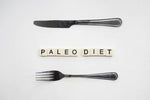National Coffee Day: the positives and negatives of your daily brew on type 2

Whether you call it java, brew, café, or coffee, the average person consumes about 3 cups a day - this is roughly 86,000 cups in your lifetime. On National Coffee Day we give thanks to this treasured beverage that can be served hot or cold, fast or slow, with or without caffeine and is the reason why so many people remain fueled throughout their days spent on Earth!
So, what else is in coffee? Is coffee good for us? How does it impact type 2 diabetics? “Caffeine is the first thing that comes to mind when you think about coffee. But coffee also contains antioxidants and other active substances that may reduce internal inflammation and protect against disease,” says Diane Vizthum, M.S., R.D., research nutritionist for Johns Hopkins University School of Medicine. Let’s get into the grounds and take a good look.
Coffee Positives
The obvious is caffeine, the caffeine found in coffee turns us from zombie mode into fully functioning multitaskers! Caffeine can improve memory, decrease fatigue, and improve your mental functioning. A growing body of research suggests people with type 2 diabetes react to caffeine differently. The body of evidence from epidemiological studies suggests that drinking 3-4 cups of coffee per day is associated with an approximate 25% lower risk of developing type 2 diabetes, compared to consuming none or less than 2 cups per day. But, for people who already have type 2 diabetes, it can cause blood sugar levels to lower or rise.
Drinking one to two cups of coffee a day may help ward off heart failure, when a weakened heart has difficulty pumping enough blood to the body. In the American Heart Association journal Circulation: Heart Failure. It found the more coffee people drank, the lower their risk for heart failure. But that benefit didn't extend to people who drank decaf. It should be noted that losing weight, and not smoking are still the greatest influencers in avoiding heart failure.
Coffee naturally contains a variety of compounds that display antioxidant properties. These include chlorogenic acids and melanoidins, which may help to deactivate oxidants. A diet high in antioxidants may reduce the risk of many diseases such as heart disease. Antioxidants scavenge free radicals from the body cells and prevent or reduce the damage caused by oxidation. The protective effect of antioxidants continues to be studied around the world.
Coffee Negatives
“There aren’t a lot of downsides to drinking moderate amounts of coffee — and in fact, it can have positive effects on your health,” says registered dietitian Andrea Dunn, RD.
However, it’s true, you can have too much of a good thing. The key is moderation. Drinking too much coffee can give us some undesirable side effects such as:
- Increased heart rate
- Raised blood pressure
- Anxiety
- Trouble falling asleep
Experts recommend sticking to less than 400 milligrams of caffeine per day. An 8-ounce cup of coffee typically has 80 mg to 100 mg of caffeine, which works out to about four cups a day.
Another potential negative is how we are preparing our coffee. First of all, adding sugar or creamer to coffee increases blood sugar levels. Secondly, add-ons to your coffee can turn it from a virtually zero calorie beverage to a 500 calorie beverage in no time. For example, a Starbucks Vanilla Latte with whole milk contains between 140-370 calories, depending on your choice of sizes. Examining that further, you also have added sugars and fats to account for. If you are cutting calories to lose weight or trying to maintain a healthy weight, take an honest look at the preparation of your coffee.
What you add can make a difference in how healthy the beverage really is. Don’t add cream, instead use a milk substitute or half- and- half. Enjoy the new alternatives such as oat, hazelnut, soy, or almond milk! Plant milks are typically lower in saturated fat and calories than cow's milk and provide some of the nutritional benefits of the whole plants themselves.
Plant milks are also a good option for those who have milk allergies or lactose intolerance and are also much better for the environment than the traditional milk. There are so many popular options for plant based milks found in grocery and convenience stores nationwide. If you have to go with the traditional dairy option, adding up to two tablespoons of low-fat milk will have less fat and calories than whole milk.
Don’t add sugar, instead try using naturally sweet spices and flavorings. Enjoy your brew your way, there are MANY healthy options for what you can add to creating your perfect for you, delicious coffee. Just to name a few ~ try stirring in a ¼ teaspoon of the following for extra flavor mixing until you find your just right sweet spot:
- Honey
- Maple Syrup
- Vanilla extract
- Cardamom
- Cinnamon
- Unsweetened Cocoa powder
Enjoy your cup of Joe!
All in all it’s important to be mindful of what we put into our bodies and what their implications are. Caffeine affects every person differently. If you have diabetes or you're struggling to control your blood sugar levels, limiting the amount of caffeine in your diet may provide a benefit as well as keeping an eye on your coffee add-on’s. So enjoy International Coffee Day and continue to stay informed on great ways to manage Type 2 - Join the Winning Type 2 Diabetes Together community on Facebook and connect with thousands of other diabetics around the world.




